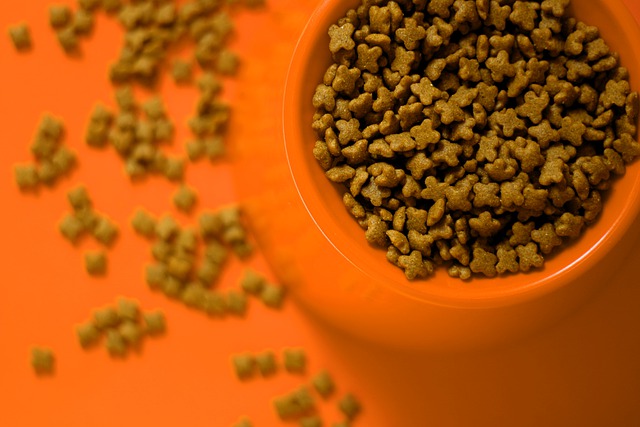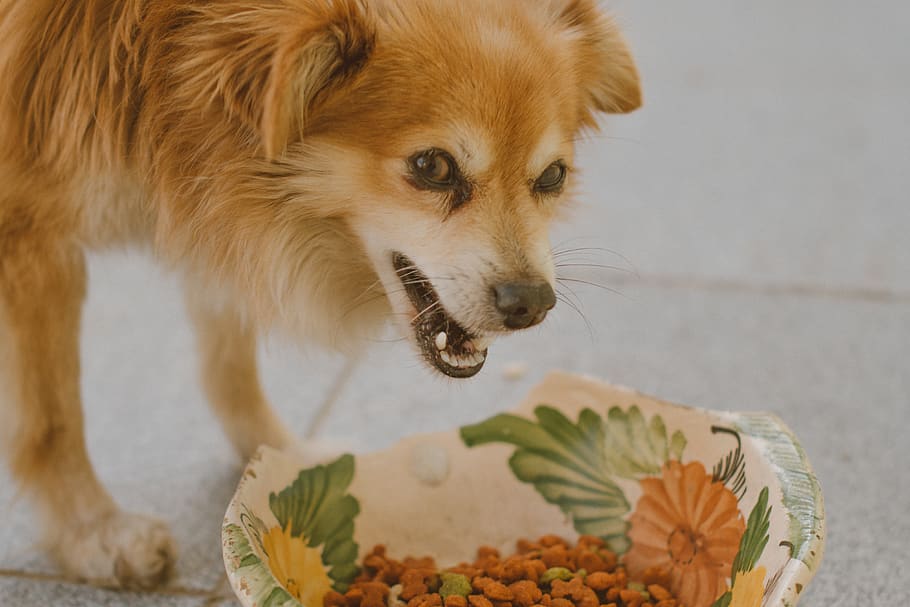Feeding your four-legged friend is more than just a routine; it’s an essential aspect of caring for your beloved canine companion. To ensure your dog’s health and happiness, you’ll need to understand the rules of dog feeding. In this guide, we’ll explore the key principles and best practices for providing the best nutrition to your furry friend.
1. Choose Quality Dog Food
The foundation of your dog’s diet is the food you select. Opt for high-quality dog food that is appropriate for your dog’s age, size, and specific needs. Look for options that list a recognizable source of protein as the first ingredient.
2. Follow Portion Control
Overfeeding can lead to obesity and related health issues. Carefully measure your dog’s food portions, and follow the feeding guidelines on the dog food packaging. Adjust the quantity based on your dog’s activity level and any weight management goals.
3. Stick to a Feeding Schedule

Establish a consistent feeding schedule for your dog. Most dogs thrive on two meals a day, but the frequency can vary based on your dog’s age and lifestyle. Stick to regular mealtimes to help with digestion and housebreaking.
4. Fresh Water Always
Ensure your dog has access to fresh, clean water at all times. Hydration is crucial for their well-being. Wash their water bowl regularly to prevent bacterial growth.
5. Avoid Harmful Foods
Certain foods are toxic to dogs and should be avoided at all costs. These include chocolate, grapes, raisins, onions, garlic, and foods containing xylitol. Be aware of what your dog can and cannot eat.
6. Monitor Treats
While treats can be a delightful way to reward your dog, moderation is key. Excessive treats can lead to weight gain and disrupt the nutritional balance of your dog’s diet.
7. Human Food Caution
Be cautious when sharing human food with your dog. While some human foods are safe in small amounts, others can be harmful. For example, plain cooked chicken is generally safe, while fatty or seasoned foods can cause digestive issues.
8. Understand Your Dog’s Breed and Age
Different dog breeds and life stages have varying nutritional requirements. Puppies, adult dogs, and senior dogs need different diets. Consult your veterinarian to determine the best food and feeding plan for your dog’s specific circumstances.
9. Monitor Weight and Body Condition
Regularly assess your dog’s weight and body condition. You should be able to feel their ribs without them being visible. Consult your vet if you have concerns about your dog’s weight.
10. Transition Food Gradually
When switching your dog’s food, do it gradually. Mix the new food with the old over several days to prevent digestive upset.
11. Address Dietary Allergies
If your dog displays signs of food allergies, such as itching, vomiting, or diarrhea, consult your veterinarian. They can recommend an elimination diet or allergy testing to identify and manage the issue.
12. Special Dietary Needs
Some dogs have specific dietary needs due to medical conditions. In such cases, your vet may recommend prescription dog food to address these issues effectively.
13. Regular Vet Checkups
Routine vet checkups are crucial for assessing your dog’s overall health and nutritional needs. Your vet can offer guidance on diet, supplements, and any necessary adjustments.
14. Exercise and Feeding
Pair your dog’s feeding schedule with regular exercise. Physical activity helps maintain a healthy weight and ensures proper digestion.
15. Avoid Free-Feeding
Free-feeding, where food is available to your dog all day, is generally discouraged. It makes portion control challenging and can lead to overeating.
16. Treats for Training
Treats are valuable tools for training your dog. Use small, low-calorie treats for rewards during training sessions.
17. Senior Dog Care
As dogs age, their nutritional needs change. Consider senior dog food options designed to support their health during their golden years.
18. Observe Eating Habits
Pay attention to your dog’s eating habits. If they suddenly lose interest in food or experience changes in appetite, it could indicate an underlying health issue that needs attention.
19. Multivitamins and Supplements
Consult your vet before giving your dog any supplements or multivitamins. While some dogs may benefit from specific supplements, others can get all their nutrients from a balanced diet.
In conclusion, providing your dog with proper nutrition is an act of love and responsibility. By following these rules of dog feeding, you’ll ensure that your furry friend enjoys a healthy, happy life. Remember that every dog is unique, so it’s essential to tailor their diet to their individual needs. Always consult your veterinarian for personalized advice and guidance on your dog’s nutrition.
